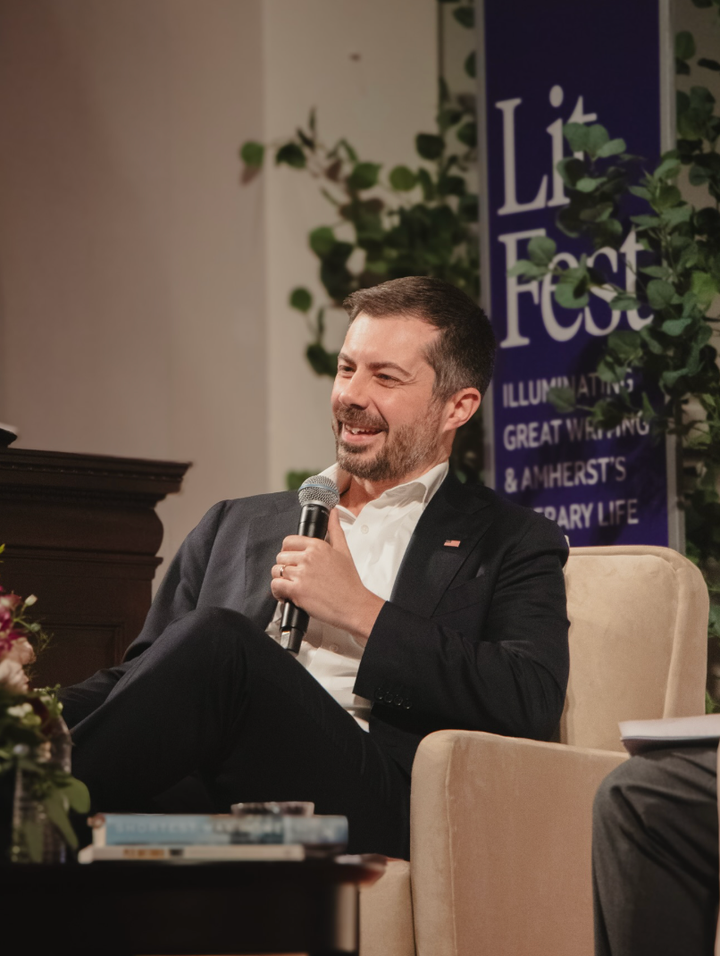About “About Time”: A Film for the Ages

This needs to be said right away: “About Time” is a new movie about a time-traveler who marries the always-popular “Mean Girls” star Rachel McAdams. It is is not, however, “The Time Traveler’s Wife,” which was released in 2009 and is also about a time-traveler who marries the beautiful “Wedding Crashers” actress Rachel McAdams. Aside from the odd repeated typecasting of Rachel McAdams as drawn to time-traveling men (she also starred in “Midnight in Paris” with Owen Wilson) and the seemingly identical premise, the two films have remarkably little in common. “About Time” deserves to be separated from its disappointing predecessor in our minds, as it is not only one of the best romantic movies I’ve seen in a while but also one of the most uplifting movies of this year.
Quickly establishing the basic premise, the exceedingly awkward Tim Lake (Domhnall Gleeson), at the age of 21, discovers that the men in the family can travel in time throughout their own lives. After receiving advice from his father (Bill Nighy) that he has to make himself happy and that “he can’t go back and kill Hitler or shag Helen of Troy,” Tim vows to use his gift for love and moves to London to find it. Immediately upon meeting the beautiful American wallflower Mary (Rachel McAdams), he falls madly in love and, after almost missing their meeting by changing the past, uses his power to bring them back together and build their relationship. In the meantime, Tim must deal with his sister Kitkat’s (Lydia Wilson) propensity for dating terrible men and his inability to change his father’s terminal diagnosis.
Directed by Richard Curtis, the director of “Notting Hill” and “Love Actually,” this latest effort is just as perfect for any movie goers who love great characters, funny and insightful dialogue, crying while your friends try to watch the movie and, simply, love. Anyone who has seen these movies or a film with more of a focus on romance than comedy will find themselves in familiar territory. While the time travel certainly provides some funny moments, the movie performs the impressive feat of making Tim’s powers the pivot of the plot while, at the same time, not relying on it for cheap laughs and gags. There are enough plot holes in the time travel to frustrate any sci-fi fans or physics majors enough to make them leave the theater. Ultimately, this is a film for the moviegoer who is willing to suspend disbelief in not only the ability to time travel without any explanation but also the ability to fall instantly and heartbreakingly in love with someone and to become willing to do whatever it takes to find and be with that someone.
While my summary of the movie’s plot does not do justice to this, time travel is simply the catalyst for Tim’s journey, with the true heart of the movie lying in Tim’s relationships with the other characters. Because of this lack of focus on the actual travel, this is not a film that philosophizes about the meaning of time, predestination or fate. Instead, the film shows only the implications that Tim’s powers have on the people around him and the love in his life. While his and Mary’s romance is clearly the main attraction of the film, Rachel McAdams actually serves as the weakest link in the wonderfully British cast. The ping pong matches and philosophic conversations about Dickens between Tim and his father are heartwarming and relatable as they both struggle to let go and move forward with the father’s inevitable death while Tim creates his own family, despite having the ability to keep living in the past. The surprise high point of the film actually comes from Tim’s sister, Kitkat, who must learn to fix the serious mistakes in her own life with the help of her brother’s care and advice rather than powers.
Despite the wonderful and relatable characters in the film, there is a blight that should be addressed in the core romantic relationship: the fact that Tim is ultimately manipulating and lying to his wife by not telling her about his ability. Just like other movies, particularly “Groundhog’s Day,” “About Time” is based on a sexist idea that a man has some kind of advantage over the woman he loves, gradually manipulating her into falling in love with him. While that is more pronounced in the latter movie, as Tim is at least nice to Mary, he still never admits his secret to her and even uses it to break up a boyfriend she has when they meet. While this certainly doesn’t destroy the genuineness of their marriage, it certainly does reveal a disturbing trend in the romantic comedy genres and movies in general as it is okay for men to manipulate women with no knowledge on the latter’s part and no repercussions for this clear breach of trust.
In the end, this movie excels for the exact opposite reason you would expect it to: it’s not about time travel, it’s about every person’s journey to find love, cope with loss and appreciate life while it moves relentlessly forward. Yes, the strange powers are quickly established and fuel Tim’s journey to find love and happiness, but these end goals come from the far more relatable process of maturity. The genius of this lies in the fact that Tim, while messing up time through his accidental travels, never actually needs to use his gift as, for example, Mary only ends up with a boyfriend because of a miscalculation on Tim’s part. It is especially during the moments Tim decides that he must solve his problems through active change in the present rather than the past, such as the scenes with his sister or his father’s funeral, when this message truly crystalizes. While the metaphor becomes rather heavy handed in the last moments of the film, the main message that every person, even Tim and his father, cannot live in the past forever is clear and uplifting throughout.





Comments ()